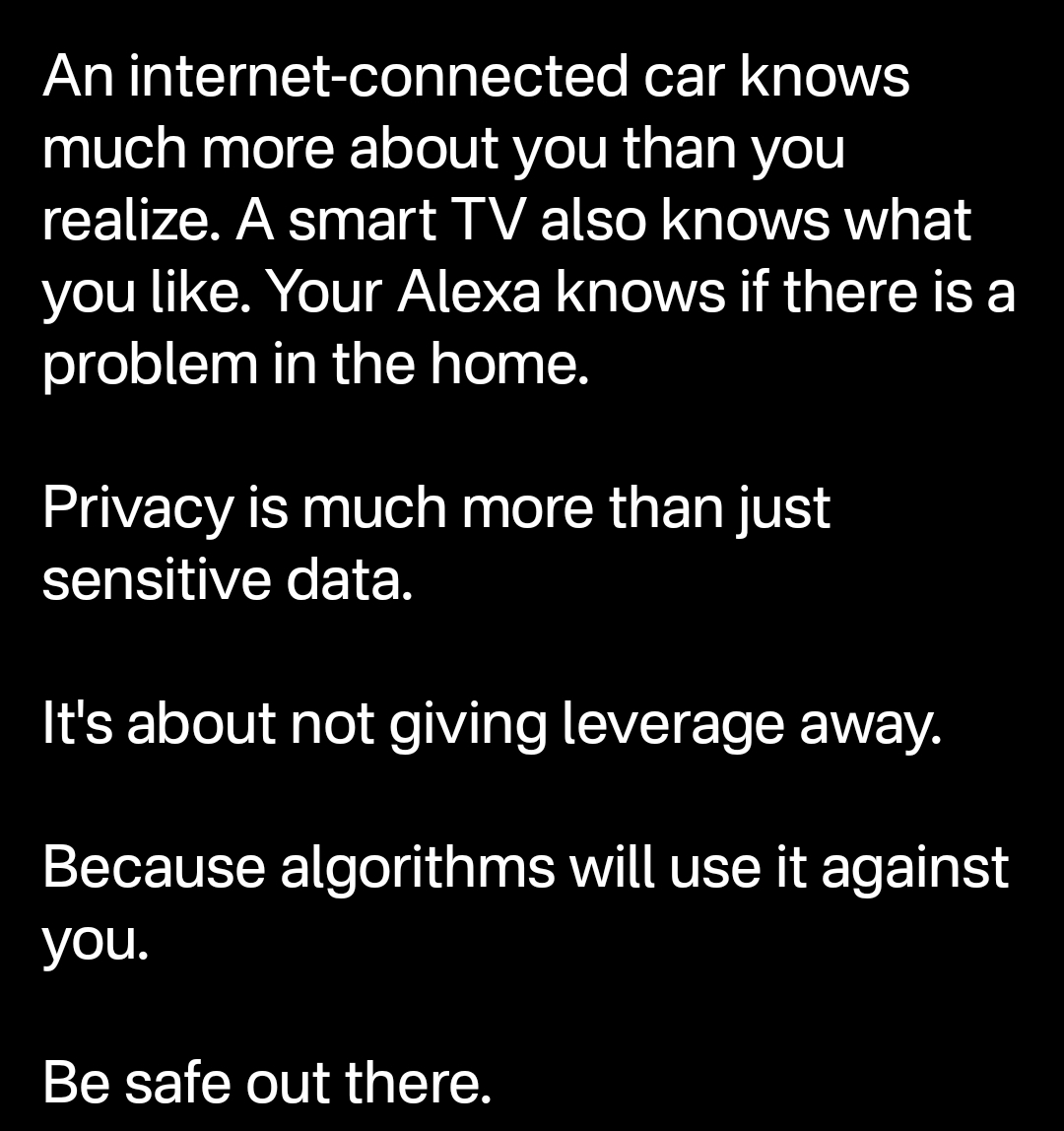
post text
Picture this:
- You type on Google “laptop won’t turn on”
- Google now knows you have a broken laptop and can estimate how desperate you are to fix it.
- Because it knows how desperate you are, it can increase shop prices proportionally.
You are going to pay the maximum they get you to pay.
That’s algorithmic pricing.
The more companies know about you, the more they can predict and sell how desperate you are to other stores out there.
An internet-connected car knows much more about you than you realize. A smart TV also knows what you like. Your Alexa knows if there is a problem in the home.
Privacy is much more than just sensitive data.
It’s about not giving leverage away.
Because algorithms will use it against you.
Be safe out there.

So… I don’t think that’s necessarily how it works, at least not in aggregate. The first issue is the market capture you mention: Amazon has a sort of “soft” market capture-- you’re free to buy stuff from wherever, of course, but Amazon encourages customers to stay in their ecosystem, and also doesn’t permit sellers to set prices lower off-site for products that they list on Amazon (e.g. if they want to have a sale on their own website, that sale price must be reflected on Amazon, too). Those are some of the ways that Amazon exerts “soft” market control, which we both recognize is enough for algorithmic pricing to work.
Google also has this kind of “soft” market control… And they are generally much wider-reaching than Amazon. For instance: You suggested that people will “shop around.” How do people shop around? They probably use a search engine, and their search engine is probably Google. If Google was trying to interpret intent and guide their shopping decisions, why wouldn’t they privilege companies using “personalized pricing” in the search results, and bury non-participating competitors? Similar things already happen with ads. So when the user “shops around a little bit,” they are probably doing so in the context of the first page of Google results… Which, of course, Google is in control of.
Some people will clue in and search through other channels, or have retailers that they prefer, and visit directly… But many people will not bother/know to, just like they don’t bother/know to check CamelCamelCamel for Amazon price history to see what the algorithms are doing. Sometimes it’s lazy or complacent, but lots of the time they just don’t understand that it’s happening, or the degree to which it affects them.